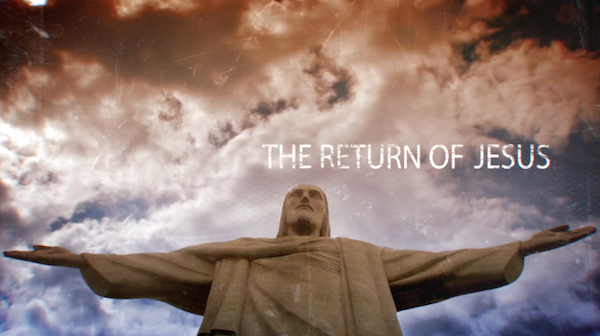The question of whether Christ has returned is one that permeates not only the fabric of individual belief systems but also the collective consciousness of religious societies. The Bahá’í Faith posits that the return of Christ is indeed a profound reality manifested through its founding figure, Bahá’u’lláh. This assertion is rooted in a rich tapestry of scriptural interpretation, prophetic fulfillment, and a nuanced understanding of spiritual evolution. This essay strives to elucidate the Bahá’í perspective on the return of Christ, simultaneously addressing the compelling observations and deeper inquiries that fuel the fascination surrounding this significant topic.
One of the overarching themes in the teachings of Bahá’u’lláh is the authenticity and continuity of divine revelation. It can be argued that many religious practitioners cling to the anticipation of a singular messianic return, adhering to traditional interpretations. The Bahá’í perspective acknowledges the legitimacy of such expectations while enhancing them through a broader lens. This inclusive viewpoint suggests that divine manifestations are not isolated events but rather part of a historical continuum marked by recurring guidance from God for humanity’s spiritual evolution.
The scripture of the Bahá’í Faith asserts that just as Jesus Christ ushered forth a new era of spiritual consciousness, Bahá’u’lláh is the culmination of that divine cycle, fulfilling the very promises made by Christ. Bahá’ís interpret the prophetic statements regarding Christ’s return as symbolic and metaphorical rather than as literal physical appearances. For instance, the teachings of Christ regarding the ‘Second Coming’ are reframed by Bahá’í theology to symbolize a new spiritual dispensation brought forth by Bahá’u’lláh.
This brings us to the profound concept of progressive revelation. It posits that God, in His infinite wisdom, reveals His will in stages, adjusting to the evolving capacities and understanding of humanity. Each religious figure—Moses, Krishna, Zoroaster, Jesus, Muhammad, and now Bahá’u’lláh—brings with them teachings that are timely and relevant based on the societal context of their time. Such a framework inherently invites believers to reconsider the conventional interpretations surrounding the return of Christ, enabling a richer engagement with spiritual texts and a deeper comprehension of religious history.
Moreover, the Bahá’í teachings emphasize the unity of all major world religions. This interconnectedness leads many followers to perceive the return of Christ not as an isolated event. Instead, it highlights a necessary syncopation across religious timelines, each figure contributing to the spiritual tapestry of humanity. This perspective fosters gratitude for differences in spiritual traditions while simultaneously cultivating a common denominator—an underlying truth that all prophets serve as conduits for divine will.
Instituting a discussion around the return of Christ also requires an exploration of scriptural prophecies attributed to earlier religious texts. Many prophecies concerning the advent of a Messianic figure are recast under the Bahá’í lens. For example, referencing the Book of Revelation in the Christian Bible, Bahá’ís argue that the written words can be understood allegorically, depicting the transformative nature of divine intervention rather than a physical confrontation in an apocalyptic scenario. This allegorical interpretation is vital, as it reflects a shift from literalist dogmas to inclusive frameworks of understanding.
Furthermore, the response to the question of Christ’s return is inevitably interwoven with the exploration of personal and collective spiritual development. For many, the notion of divine reappearance signifies not just the advent of a prophetic figure but also an invitation to partake in a communal awakening. The essence of Christ’s teachings—that of love, compassion, and unity—resonates powerfully within Bahá’í philosophy. Thus, the return of Christ becomes a transformative process for each believer, demanding introspection, kindness, and a commitment to service in an increasingly fragmented world.
As Bahá’ís grapple with the implications of Christ’s return, they are drawn to the social implications inherent in these teachings. The embrace of unity, the pursuit of justice, and the establishment of world peace are inextricably linked to the belief in progressive revelation and the understanding that Christ has returned. This collective aspiration contributes to a broader discourse around social transformation and humanitarian efforts, proving that belief in a promised return can galvanize activism and elevate consciousness.
In light of current global challenges, the relevance of these teachings becomes even more paramount. The Bahá’í Faith promotes a vision of a single, unified world—a paradigm where the teachings of Bahá’u’lláh, reflecting those of Christ, offer solutions to pressing issues such as inequality, prejudice, and environmental degradation. The transformative nature of belief in a returning Christ reinforces the notion of moral responsibility among individuals and communities, steering discourse towards actions that evidence a commitment to justice, equity, and stewardship of the planet.
In summation, the contemplation of Christ’s return within the framework of Bahá’í teachings implicates a multi-layered dialogue fostering personal growth and societal progress. Through the lens of progressive revelation, believers are invited to engage with the narrative of spiritual evolution as a holistic endeavor—one that embraces both the repetition of divine instruction and its ever-evolving manifestation in the contemporary world. This rich dialogue continues to inspire numerous followers, inviting them to reflect on the dynamics of their spiritual journey while actively participating in the unfolding promise of a just and peaceful global society.
